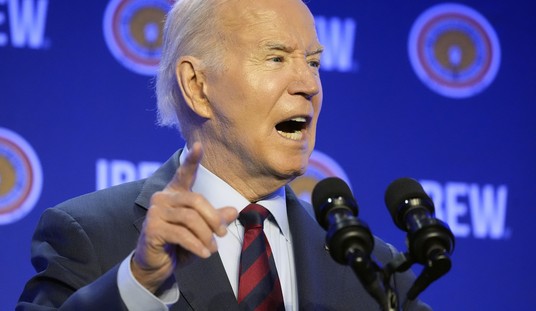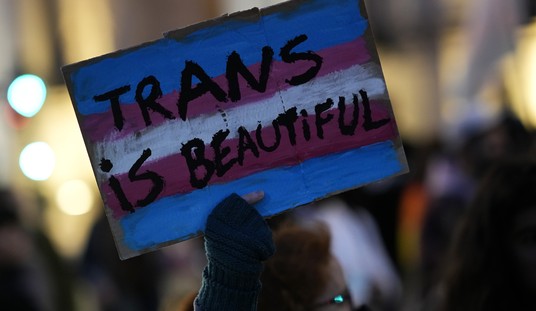Big Government programs never seem to have any definite objectives. There are no victory conditions, no exit strategies, no test a program could fail that would result in its termination. This is one of the many reasons it is obscene for socialists to appropriate the language of business and “investment” to peddle their schemes. Investment is voluntary, and every investor envisions some level of failure that would prompt him to pull the plug on a bad investment. By contrast, government programs go on forever, we’re told it’s impossible to pass terminal judgment against them, and we are not allowed to withdraw our support.
It’s also foolish to use the language of “war” to describe these programs, although the Left loves to do so, because “the moral equivalent of war” fosters an atmosphere of crisis and obedience. Normal cost-benefit calculations are suspended when you’re fighting a war, and the high command must be obeyed without question. A republic of free people can handle these conditions during an actual war, because wars end. On the other hand, “wars” on social issues go on forever, and it is considered rude to ask about victory, retreat, or defeat.
For example: how is the War on Poverty going? We spent a trillion dollars on that, back when a trillion dollars was a lot of money for Uncle Sam. Actually, we’re spending almost a trillion dollars per year on means-tested federal and state welfare programs these days. Our reward for this is more poverty – poverty levels higher than they were in the late Sixties. Under the current definition, one in six Americans live in poverty… but even the definition of poverty is the subject of much debate, because it doesn’t include the enormous value of those War on Poverty welfare programs, which can leave an “impoverished” family with more disposable income than “middle class” families enjoy.
Does this constitute success or failure for large-scale government welfare programs? If the objective of the War on Poverty was to reduce poverty, it must be judged one of the most astonishing failures in American history. Poverty won in a rout. On the other hand, if the objective was to make poverty more comfortable, by raising the standard of living for poor Americans, the war could be viewed as an impressive success. Most of the world’s poor live in conditions of awful deprivation; America’s poor wrestle with chronic obesity.
Improving life for the desperately poor is not a trivial achievement. Americans are a generous people who don’t want to see anyone go sick or hungry. It is taken as a sign of national affluence that we can effectively abolish hunger and other deprivations. We are in general agreement that a social safety net should prevent tragic reversals of fortune from dropping hard-working people into a bottomless pit of despair.
But at the outset of the War on Poverty, Americans were not told that the objective of the program was to make long-term residence below the poverty line more comfortable. The idea was to reduce the number of people living there, by providing welfare assistance that would help them get back on their feet and begin taking care of themselves. As the old saying has it, the safety net was never supposed to be a hammock. Our parents and grandparents did not agree to pay fantastic sums of money to create a permanent dependency class, whose upper limits reside far inside territory formerly thought of as the “middle class.”
They certainly didn’t imagine they would be creating a system with such a voracious appetite for revenue that the growth-oriented tax cuts needed for healthy job creation would become unthinkable, completing the cycle of socialist degeneration by creating a reduced, weakened private sector that can’t generate enough jobs to raise the working poor out of dependency. We have a system that manufactures poverty, and a political class that profits from it. We never would have reached this state of affairs if the welfare state had been chartered under the same conditions as a true “investment” or military action: solid objectives on a firm timetable, with alternate plans and exit strategies to be activated in the event of failure.
The immigration reform debate has this aura of “government without objective,” as well. What are the true objectives of immigration reform? Most voters would probably rank “reducing illegal immigration” very high on that list, but that’s exactly where immigration reformers get vague.
It is a simple matter of common sense to suppose that creating a “pathway to citizenship” will bring a new wave of illegal immigrants looking for the on-ramp. There are already stories of invaders apprehended by the Border Patrol saying things like “Where do I go for my amnesty?” and “Obama’s gonna let me go.” And yet, comprehensive immigration reform features border security “triggers” that will never actually be triggered, and would result in nothing more than a round of committee meetings if they were.
Another objective most current citizens would assign to comprehensive immigration reform is the swift and smooth assimilation of new citizens, but instead they’ll be held for years in a quasi-citizen “provisional” status that seems more likely to produce further alienation – especially once leftist politicians begin milking it for influence, portraying every restriction placed on the provisional population as a hate crime. Instead of a “solution,” the Gang of Eight reforms look more like an open wound that will keep bleeding for a decade.
As with the War on Poverty, we must decide if we want to reduce the problem of illegal immigration, or make it less uncomfortable. The latter objective is far more open-ended, with success and failure subject to political interpretation. For that reason, it’s obviously the more attractive course to the political class.














Join the conversation as a VIP Member